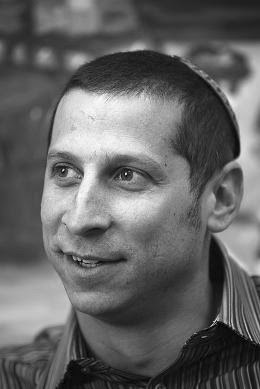 The National Executive Committee of the Board comprises a broad and genuinely representative cross-section of South African Jewish leaders. The latter are drawn from all the major Jewish centres countrywide and include some of the country’s foremost businessmen, academics and lawyers, as well as lay and professional leaders, who have given many years of service in a wide variety of capacities to Jewish communal life.
The National Executive Committee of the Board comprises a broad and genuinely representative cross-section of South African Jewish leaders. The latter are drawn from all the major Jewish centres countrywide and include some of the country’s foremost businessmen, academics and lawyers, as well as lay and professional leaders, who have given many years of service in a wide variety of capacities to Jewish communal life.
Earlier this month, the NEC held its first meeting for 2008. There were many serious issues on the table. What emerged very strongly was the extent to which crime, the ongoing power crisis and the general post-Polokwane uncertainty was negatively impacting on our community’s morale.
Serious as these issues were, I was nevertheless encouraged by the high level of debate, the insightful and constructive nature of the points raised and, in general, by the feeling that we are meeting the challenge in a spirit of unity and common concern for our community’s well-being.
In the coming months, the Board will redouble its efforts to lobby the powers that be to make them aware of our community’s needs, and find ways in which we can become constructively involved in solving the nation’s problems. At the same time, however, we must always look to find ways to help ourselves.
One of our community’s most significant achievements in this regard has been the success of the Community Active Patrol (CAP) initiative in reducing violent crime levels in areas of Johannesburg where Jews are concentrated. This has demonstrated — not only to Jews but to all South Africans — that ordinary citizens need not be helpless victims but, through working together, can meaningfully address the problems that face them. All credit to Chief Rabbi Goldstein and the CSO in getting this enormously significant undertaking off the ground.
Moving on to developments in the Middle East, the Board took strong exception to statements made by Deputy Foreign Minister Aziz Pahad regarding the latest clashes between Israel and Gaza. Once again, Israel was singled out exclusively for heavy criticism, and this time there was not even a token condemnation of the innumerable acts of provocation by the Palestinians, specifically the ongoing rocket barrage against Sderot and other Israeli civilian targets. It represented an unfortunate relapse into the kind of extremely one-sided statements made by the government against Israel that were regularly released in the early years of this decade.
We responded with a strongly worded letter to Mr Pahad (which the Citizen newspaper printed in full and which led in turn to my being interviewed on SAFM). Amongst other things, we stated that, contrary to how the government was choosing to interpret the situation, it was the Palestinians who were guilty of acts of aggression, indiscriminately targeting civilians, gross violations of international law, the collective victimisation of the Israeli people and the sabotaging of the peace process. Instead of condemning this, however, the government chose instead to castigate Israel for its response to them.
We suggested that our country would best serve the Palestinian cause by distancing itself from the Palestinians’ ruinous and self-defeating campaign of aggression against the Israeli people and by urging the Palestinian leadership to abandon violence in favour of peaceful negotiations.











